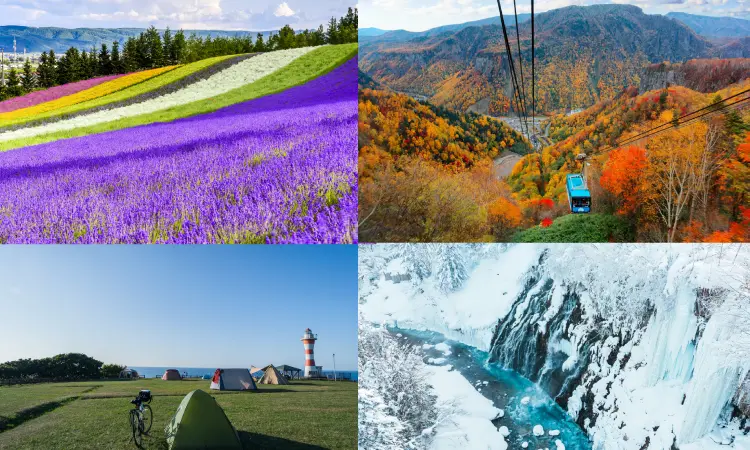Exploring Hokkaido’s Deep Connection with Nature: A Cultural Journey
Hokkaido, the northernmost island of Japan, is renowned for its vast, unspoiled nature. From dense forests and expansive wetlands to rugged mountains and pristine coastlines, Hokkaido offers a breathtaking natural landscape that is deeply interwoven with its cultural heritage. This article explores the profound relationship between the people of Hokkaido and their natural environment, providing insights into how nature shapes their way of life, traditions, and values. By the end of this article, you will have a deeper appreciation for the unique bond Hokkaido’s inhabitants share with their surroundings.
Historical Background
The relationship between the people of Hokkaido and nature dates back to ancient times, beginning with the indigenous Ainu people. The Ainu have a deep spiritual connection with nature, viewing it as a living entity. Their culture is rich with rituals and traditions that honor the natural world, from the sacred bear ceremonies to their sustainable fishing and hunting practices. The arrival of Japanese settlers during the Meiji era brought new challenges and changes, but the reverence for nature remained. The settlers adapted their agricultural and fishing practices to coexist with Hokkaido’s harsh winters and fertile summers, creating a unique blend of traditional and modern living that continues to evolve today.
Coexisting with Nature
Agriculture and fishing are central to Hokkaido’s economy and lifestyle, deeply rooted in the region’s natural environment. The fertile soil and clean waters provide ideal conditions for farming and fishing, allowing the local community to thrive. Traditional practices such as rice farming, dairy farming, and the cultivation of vegetables and fruits are still prevalent, alongside modern techniques that enhance productivity while preserving the environment. Similarly, the fishing industry in Hokkaido is renowned for its sustainable practices, focusing on preserving fish populations and marine ecosystems. The daily lives of Hokkaido’s residents are intricately connected to these industries, reflecting a harmonious coexistence with nature.
The Four Seasons of Nature
Hokkaido’s distinct four seasons each bring unique natural beauty and cultural events that celebrate the changing environment.
Spring
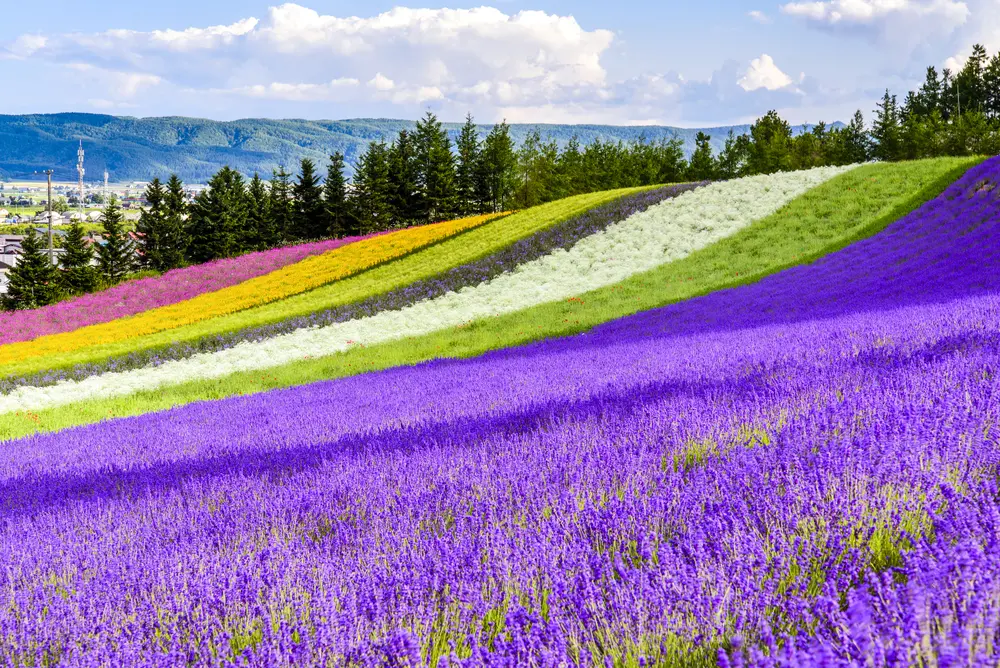
As the snow melts, Hokkaido transforms into a vibrant tapestry of blooming flowers and fresh greenery. Cherry blossoms and lavender fields attract visitors from all over the world. Local festivals celebrate the arrival of spring, featuring traditional dances, music, and food.
Summer
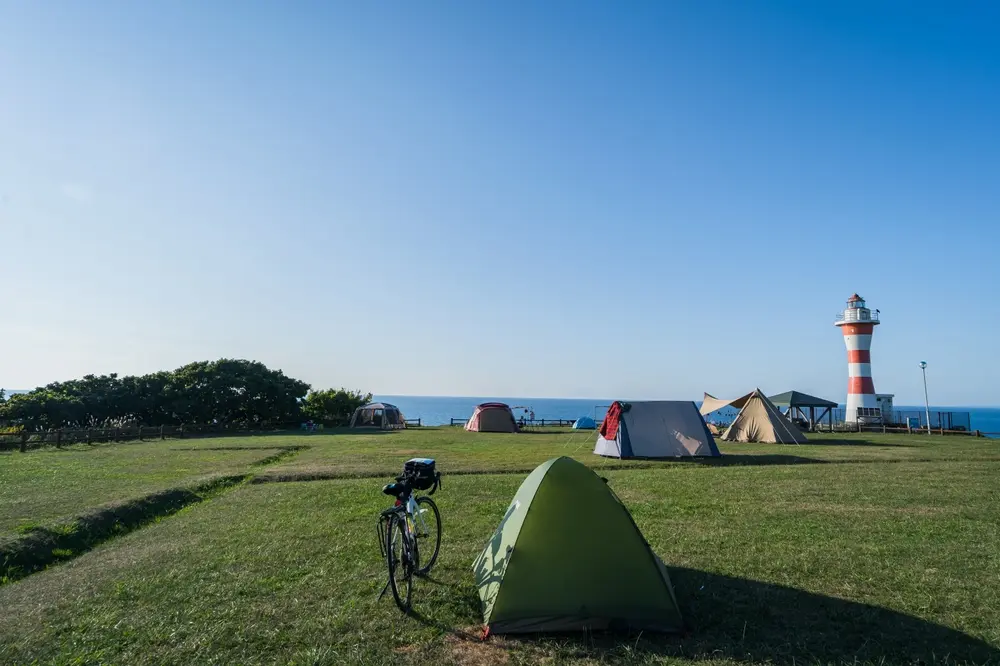
The warm months are marked by lush landscapes and numerous outdoor activities. Festivals such as the YOSAKOI Soran Festival and the Sapporo Summer Festival draw large crowds. Beaches and lakes become popular spots for swimming, boating, and barbecuing.
Autumn
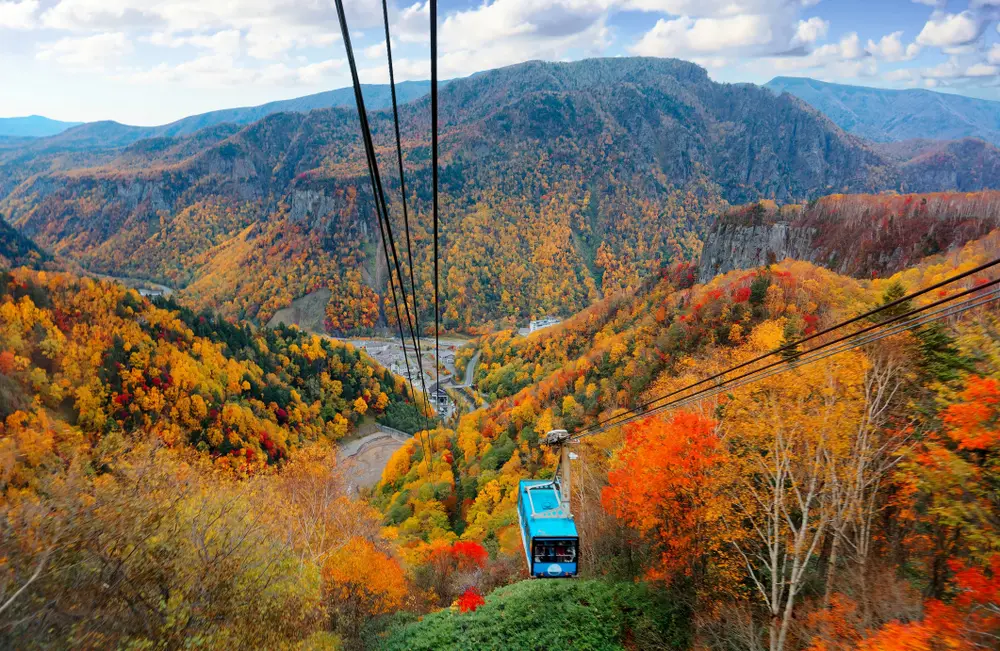
The arrival of autumn brings a breathtaking display of fall foliage. Hokkaido’s forests and parks turn into a palette of red, orange, and yellow. Harvest festivals celebrate the season’s bounty, with events showcasing local produce and traditional dishes.
Winter
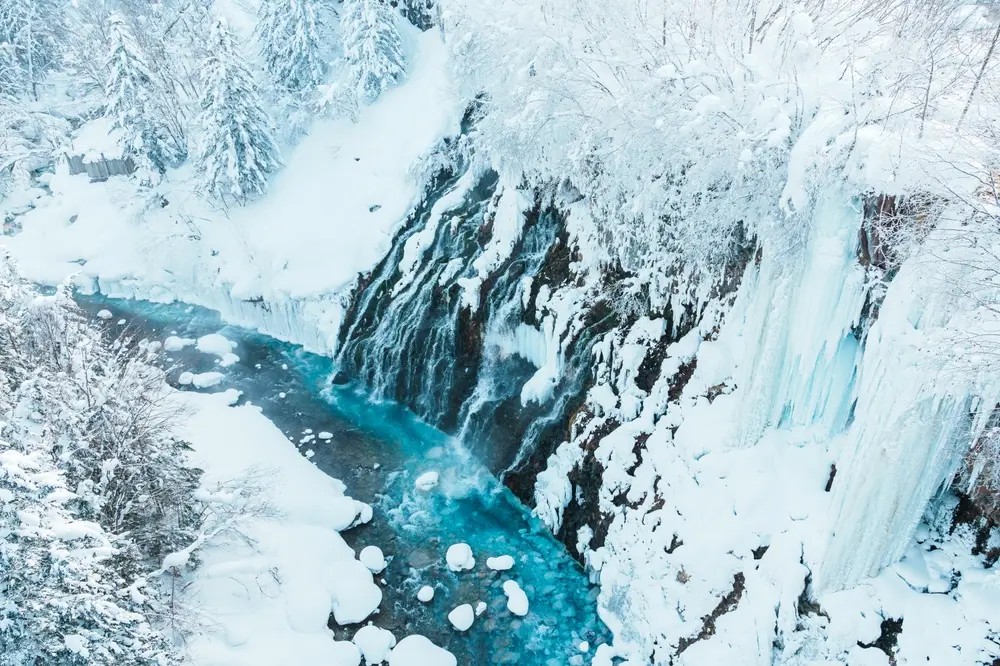
Hokkaido is famous for its snowy winters, transforming the island into a winter wonderland. The Sapporo Snow Festival, with its magnificent ice sculptures, is a highlight. Skiing, snowboarding, and hot spring baths are popular activities, offering both adventure and relaxation.
Enjoying Nature through Outdoor Activities
Hokkaido offers a wide range of outdoor activities that allow residents and visitors to connect with nature. Hiking and trekking trails are abundant, offering breathtaking views and encounters with wildlife. National parks such as Daisetsuzan and Shiretoko are prime destinations for nature enthusiasts. In winter, skiing and snowboarding are major attractions, with renowned resorts like Niseko and Furano drawing enthusiasts from around the globe. Onsen (hot springs) provide a perfect way to relax and rejuvenate after a day of outdoor activities, with many situated in scenic locations offering stunning views of the surrounding nature.
Conservation and Sustainability
Environmental conservation is a significant focus in Hokkaido, with numerous initiatives aimed at preserving the natural landscape and promoting sustainable practices. Local communities actively participate in conservation efforts, from reforestation projects to beach clean-ups. Eco-tourism is also gaining popularity, offering visitors the chance to explore Hokkaido’s natural beauty while minimizing their environmental impact. Sustainable farming and fishing practices are promoted to ensure that the region’s natural resources are preserved for future generations.
Conclusion
Hokkaido’s deep connection with nature is a defining aspect of its culture and way of life. From the ancient traditions of the Ainu people to the modern practices of sustainable living, the bond between the land and its inhabitants is profound and enduring. As you explore Hokkaido, take the time to appreciate the natural beauty and cultural richness that make this island so unique. Whether you’re hiking through lush forests, enjoying a festival, or simply relaxing in a hot spring, you’ll find that Hokkaido’s relationship with nature is truly something special
